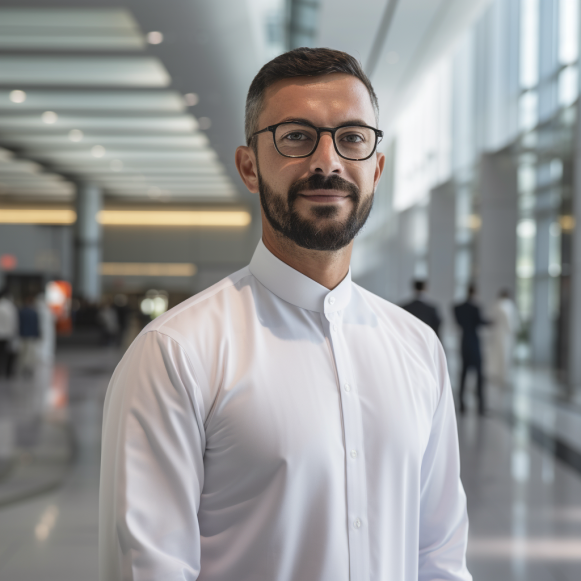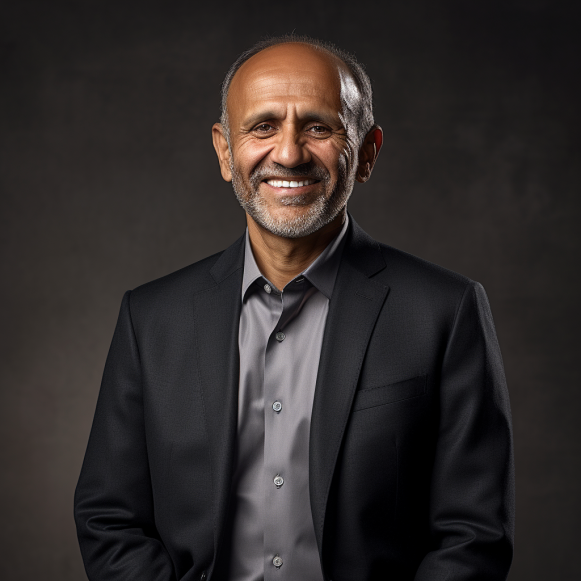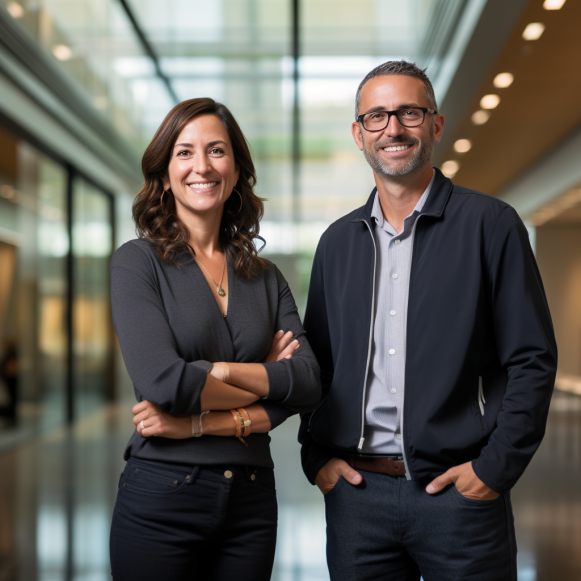Alice Zheng moved from med school to McKinsey to venture capital. Here’s how she’s using those experiences to advance innovation in women’s health.

- Alice Zheng is a VC at RH Capital focusing on early-stage women’s health startups.
- She is a doctor who graduated with three University of Michigan degrees and a Harvard MBA.
- Zheng was also a women’s health practice leader at management-consulting firm McKinsey.
During her first year at the University of Michigan Medical School, Alice Zheng spent her afternoons rushing from her anatomy class in the north end of campus to audit classes at the Ross School of Business – all while wearing her scrubs.
She recalls being skeptical of business school classes as a long-time aspiring doctor with a master’s degree in public health. They, however, changed her mind – and her career path.
Zheng is now a principal at RH Capital, the fund of Rhia Ventures, seven years after graduating from medical school. Last year, the firm, which focuses on early-stage women’s health investing, raised $38.5 million for its second fund.
Doctors who become venture capitalists are a small and close-knit group in the venture community. When it comes to assessing the viability of healthtech startups, MDs can give investors a leg up. Lightspeed Venture Partners, GV, and Khosla Ventures are among the firms that have hired medical doctors to bring their training and expertise to growing healthcare practices.
“There are others who could treat pneumonia or deliver a baby better than I could, but I was at the intersection of medicine, business, and public health,” she explained.
Zheng always knew she would become a doctor, but she was flexible in her career plans after discovering other passions
Zheng, who was born in China, immigrated to the United States when she was three years old. She always imagined herself as a doctor, like her grandmother. Her engineer mother supported her ambition, despite her inability to attend medical school due to the Chinese Cultural Revolution.
Zheng studied biochemistry as an undergraduate at the University of Michigan, then went on to earn a master’s degree in public health and attend medical school in Ann Arbor. Her full-ride med school scholarship alleviated some of the stresses of being a student and allowed her to spend time on campus auditing classes in other areas of interest.
She said she didn’t think highly of large corporations because she came from the nonprofit sector. However, a business school class about how the private sector can help underserved communities changed her mind during her first year.
“The private sector turns the world, and the business world and private capital can teach us about making the world a better place,” Zheng said.
Zheng later left medical school for two years to pursue an MBA at Harvard Business School. She spent a summer interning for the management consulting firm McKinsey, and she began to consider options other than becoming an obstetrician.
While working in management consulting, Zheng’s role evolved into a position focusing on women’s health.
Zheng completed a yearlong internal medicine residency program after graduating from medical school, allowing her to practice medicine in a short residency while keeping her job options open.
Zheng returned to McKinsey in 2016 and worked there for five years as a “business residency.” As a member of the firm’s healthcare group, she authored one of the McKinsey Global Institute’s first global health reports and, as a result of her prior work in women’s and maternal health, she became the firm’s point person for women’s health.
Large management consulting firms mostly work with Fortune 500 companies, and Zheng eventually realized she’d rather work somewhere where change could happen faster, like venture capital.
“My passion is women’s health, but my true center of gravity is located outside of space.” “I began to wonder, ‘Is this really where I want to spend my energy?'” she explained. “I was already leading research of the innovation landscape, discovering investment trends as well as companies popping up in the space, and I thought, ‘I actually want to be there too.'”
Zheng parlayed her role as a physician and health-focused consultant into a job at VC firm RH Capital.
Zheng mapped out a few different routes to venture in 2021. She considered going to a well-known VC fund, where she would gain more name recognition and a large amount of capital to deploy – but she would be a healthcare generalist. RH Capital, on the other hand, would allow her to focus solely on women — and their headquarters were just down the street from McKinsey’s downtown San Francisco office. Zheng had made friends with the company’s co-founders.
Zheng has led early-stage investments in startups such as AOA Dx, which develops blood tests for early ovarian cancer detection; Seven Starling, which provides maternal mental healthcare; and Millie, a tech-enabled maternity clinic, over the last two years.
Zheng invests in consumer, life sciences, diagnostics, digital health, and health services startups for women. While RH Capital is solely focused on returns, she is proud to work for a fund that considers impact in all of its investments.
“The entire medical system and modern medicine was built for men, and women have historically been treated like small men,” she explained. “That is not true, and now there are companies springing up to address these issues, as well as females founding digital startups to solve problems they have firsthand experience with.”
Zheng has experienced some of these issues both as a clinician and as a patient. She had her first pregnancy terminated due to a fetal anomaly after dealing with infertility and IVF, and she later had a difficult pregnancy before giving birth to her daughter, Juniper Chengjia Liang, last year.
“There’s a business case for funding women’s health from a patient-volume standpoint, a societal perspective, and healthcare costs,” she said. “However, I appreciate that there are a lot of women in this industry who are finding solutions to their own problems in an industry that currently has terrible clinical outcomes and few traditional solutions.”






